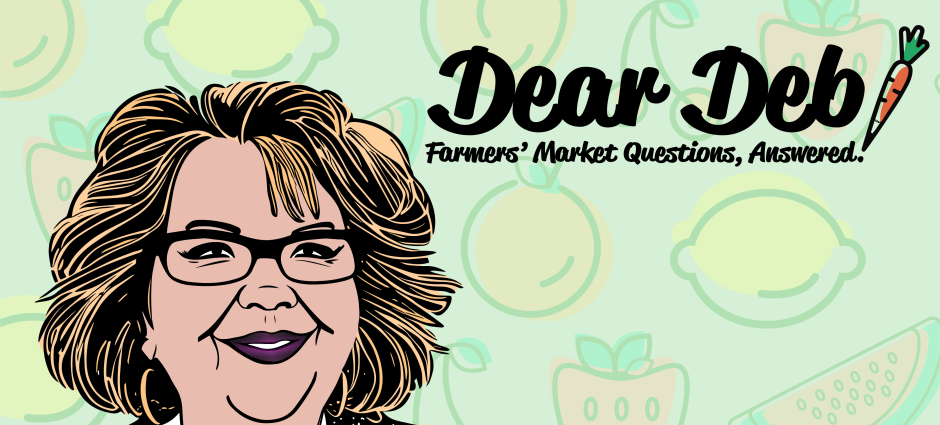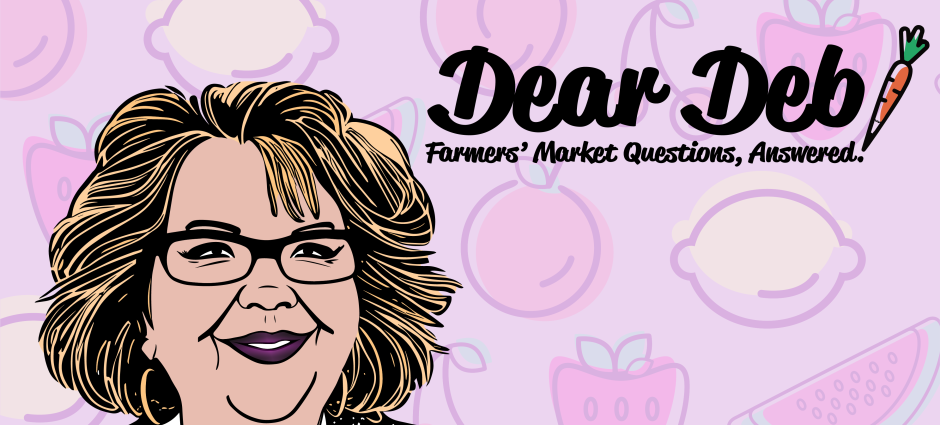Dear Deb – March 2024
Dear Deb: What does organic mean and how does it compare to non-organic? Katy, Walnut Creek
Katy: Organic produce is sought after by many customers at our farmers’ markets. If you understand the meaning and misconceptions of produce that is certified organic, you can become a better-informed consumer.
It can be difficult to decide what to buy. According to the USDA “Organic is a labeling term that indicates that the food or other agricultural product has been produced according to USDA organic standards. These methods integrate cultural, biological, and mechanical practices that foster the cycling of resources, promote ecological balance, and conserve biodiversity. Synthetic fertilizers, sewage sludge, irradiation, and genetic engineering may not be used.^
- Organic food is grown without pesticides: One of the biggest misconceptions about farming organically is that crops are grown without pesticides. They do contain fewer pesticides than non-organic food, but there are over 20 different pesticides that farmers are still allowed to use. They are considered “natural’ pesticides rather than synthetic. However, we have farmers who are not certified organic but still do not use pesticides and other chemicals. The process of becoming certified organic can be expensive and it has been found that a significant amount of conventionally grown produce is free of pesticide residue anyway.
- Organic food is more nutritious: Many studies have been done in the last 20 years and they have shown there is no evidence that organic foods are more nutritious or lead to better health-related outcomes for consumers. It is not a heal-all solution to health problems.
- Organic food is more expensive: Though most fruits and vegetables can be a bit more costly, the prices are reduced when you purchase produce in season. As demand for organic produce increases, efforts are being made to make organic food less expensive to more consumers.
- Organic food is better for the environment: While many small-scale farmers, regardless of certification, practice sustainable agriculture, incorporate water conservation, reduce pesticide use, promote biodiversity, and natural ecological processes, technological advancements have also contributed to efficiency in conventional agriculture. Regardless of the label attached to it, all farmers care about their land and their livestock.
Why should you consider making your choices of organic or non-organic at the farmers’ market, rather than another source? Not all organic produce in the grocery stores is inspected and certified organic. Organics from other nations are supposed to have the same strict standards that we have here, but that’s not always the reality with the number of inspections it goes through during the journey to get here. You are buying products from hundreds of miles away that create a larger carbon footprint. Locally grown, either organic or not organic, is a much better purchase for the environment overall.
*www.ams.usda.gov/services/organic-certification/organic-basics

